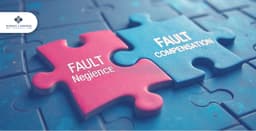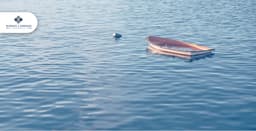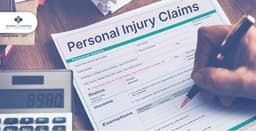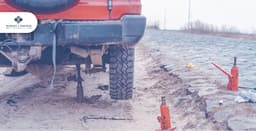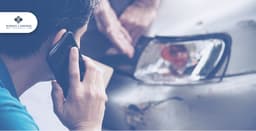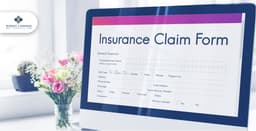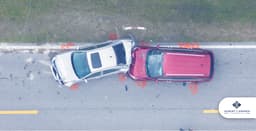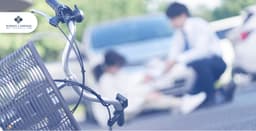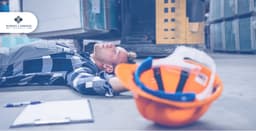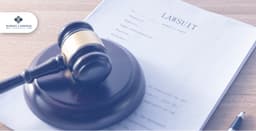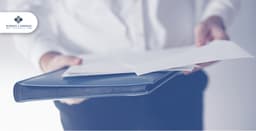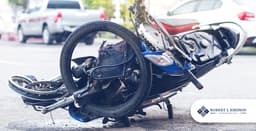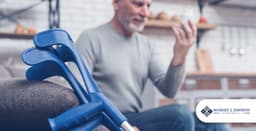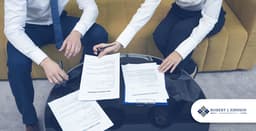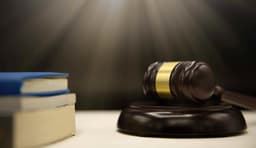
February 18, 2025
What Steps Should Be Taken Immediately In Case of a Boat Accident
Florida's beautiful oceans, lakes, and waterways make it a boater’s paradise. But they can also be unpredictable and dangerous. Not all boaters follow safety rules, and accidents can turn a fun day into a disaster. Recent tragic boating accidents in Florida have shown how important it is to be ready and know what to do if something goes wrong.
If you or a loved one has had a boating accident, it's important to take the right steps to stay safe, protect your rights, and start recovering. So, What steps do you need to take immediately after a boating accident?
6 Steps You Should Take After a Boating Accident
After a boating accident, quick action is often needed. If anyone is in danger, calling emergency services can help keep everyone safe. Sometimes, getting to a hospital quickly is very important for your care. At the same time, thinking about your accident case can help you prepare for a possible lawsuit. For these reasons, our attorney Robert Johnson recommends taking the following steps after a boat accident:
Step 1. Prioritize Safety First and Foremost.
Check for Injuries: Look around to see if anyone is hurt. If someone is injured, provide first aid if you can and call for medical help immediately. Make sure to keep calm and reassure the injured person until help arrives.
Make the Area Safe: Move yourself and others to a safe spot away from any immediate danger. If the boat is still operational, move it to a secure area to avoid further accidents. Keep an eye out for hazards like boat propellers, sharp debris, or other boats.
Use Life Jackets: Ensure that everyone is wearing a life jacket, especially if they are in the water. If someone is not wearing one, throw them a life jacket or a flotation device. Help people get out of the water and onto a boat or a stable surface as quickly and safely as possible.
Step 2. Be Sure to Report the Accident to Authorities.
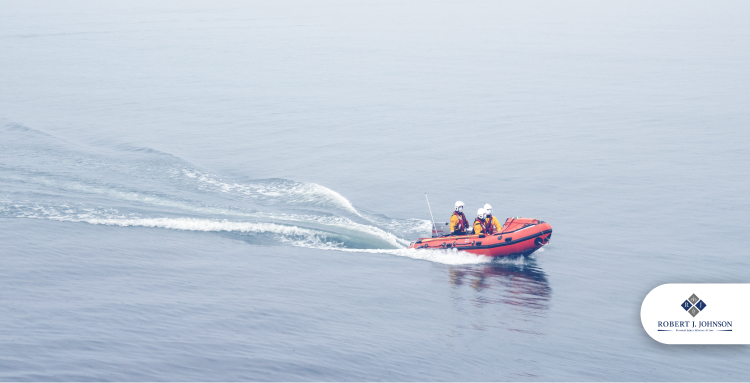
Call 911: As soon as you can, call 911 to report the accident. This is the quickest way to get help, especially if someone is hurt or in immediate danger. If you have a cellphone, use it to call for emergency assistance. If you don’t have a phone, try to use a VHF radio on Channel 16 to contact the Coast Guard or Marine Patrol.
Inform the Local Sheriff: If you’re near the shore or on inland waters, also reach out to the local sheriff’s office. They can provide additional support and help coordinate rescue efforts. If you can’t reach the sheriff directly, the 911 operator can assist in getting the right local authorities involved.
Contact the Florida Fish and Wildlife Conservation Commission (FWC): For accidents on the water in Florida, it’s important to notify the FWC. You can call them at (850) 488-5600. They are responsible for handling many water-related incidents and can send help quickly. If you can’t reach them by phone, they might also be contacted through the Coast Guard or other emergency services.
Go to their website and learn what are the requirements needed for reporting.
If no one on your boat has a phone, check with others involved in the accident to see if they can call for help. In some cases, you may need to leave the scene to get help but only do this if it’s absolutely necessary and safe to do so. If it’s nighttime or visibility is poor, consider using flare guns or other distress signals to alert nearby boats or rescue teams. These tools can be lifesaving, especially in critical situations where time is of the essence.
Step 3. Gather Information About the Incident and Those Involved.
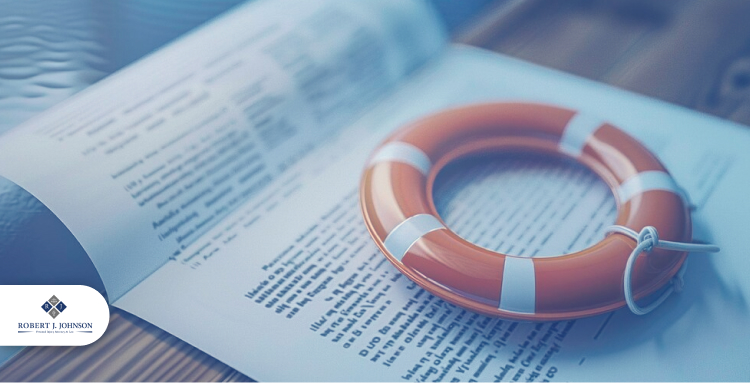
Exchange Information: Start by exchanging names, contact details, and insurance information with everyone involved in the accident. Boat operators must legally provide their name, address, and vessel identification to anyone who was injured or whose property was damaged. Make sure to get this information in writing and keep it safe.
Document the Scene: If you have a camera or smartphone, take as many photos or videos of the accident scene as possible. Capture the damage to all boats involved, the area around the accident, and any visible injuries (with permission). Don’t forget to document important details like the weather and water conditions, which can be crucial in understanding how the accident happened.
Obtain Witness Information & Statements: If there were witnesses to the accident, ask them for their names and contact information. If they’re willing, get a brief statement from them about what they saw. Witnesses can provide valuable insights that might support your version of events. Their accounts can be especially helpful in building a strong case later on.
The more evidence you can gather at the scene, the better your chances of successfully filing an insurance claim or pursuing legal action. Keep copies of everything, including accident reports, medical records, and any tickets issued, like those for boating under the influence or speeding. All of this documentation will be vital in proving your case and ensuring that you’re fairly compensated for any damages or injuries.
Step 4. Seek Medical Attention for any Injuries Sustained.
After a boating accident, it’s crucial to focus on the health and safety of everyone involved. Even if no one appears to be seriously hurt, it’s important to check for injuries and call for emergency medical help if needed. Some injuries might not be obvious right away, so getting medical attention as soon as possible is essential to protect your health and your legal rights.
If you or someone else is injured, don’t hesitate to contact emergency services. It’s more important to get the medical care you need, even if it means leaving the scene or being transported by helicopter or boat to the nearest hospital. Delaying medical treatment could make injuries worse and impact your recovery.
Step 5. Contact Your Insurance Company to Initiate a Claim.
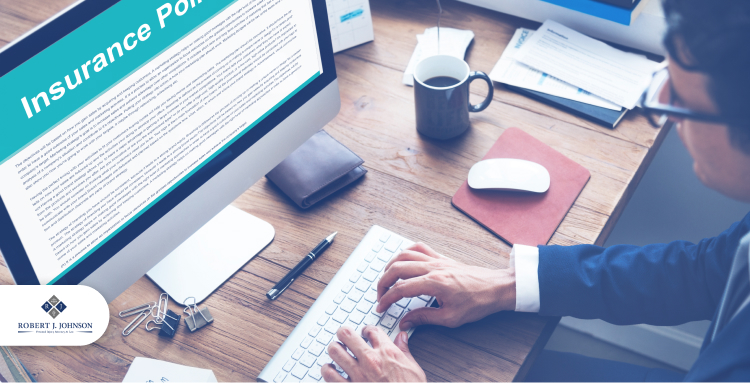
After a boating accident, it’s important to contact your insurance company as soon as possible to report what happened. Most insurance policies, whether they cover your boat or are part of your homeowner's insurance, require you to report accidents quickly and cooperate fully.
Insurance companies often try to reduce payouts or deny claims to protect their profits. Getting legal advice first can help you understand your rights. This ensures you receive the full compensation you’re entitled to under your policy.
Step 6. Consider Consulting with an Attorney for Legal Considerations Related to the Accident.
A personal injury lawyer who knows about boating accidents can explain your legal rights, help you decide what to do next, and represent you in dealing with insurance companies or even in court if needed.
Once you’ve taken care of your recovery, it’s a good idea to consult with an experienced boating accident attorney. The sooner you have legal support, the better your chances of protecting your rights and getting a fair outcome. Your lawyer will gather evidence, build a strong case, negotiate with the insurance company, and be ready to take your case to court if necessary.
How Long Do You Need To Report
Report the accident as soon as possible. Florida Law 327.1 requires immediate reporting, while federal law gives you 48 hours if someone is injured. You have up to 10 days if only the property is damaged or if there is a casualty occurring up to 24 hours later.
However, under Florida Law 327.301, you must file a written report if below things happen during the accident:
The boat is damaged and costs at least $2,000 to fix. This includes damage to more than one boat.
Other things are damaged and cost at least $2,000 to fix.
If anyone is hurt and needs more than a little help.
Someone is missing.
If anyone died.
What Kind of Financial Recovery Can Be Expected After a Boating Injury

After a boating accident in Florida, you can seek financial recovery by either filing an insurance claim or suing for personal injury. In Florida, boat insurance is not required like car insurance, but it might be needed if you have a loan on the boat or if the marina requires it. If you can’t get compensation through insurance, you might need to file a personal injury lawsuit against the person responsible for the accident.
The amount of compensation you can get depends on how serious your injuries are and what caused the accident. However, you may recover money for medical expenses, property damage, lost wages, emotional distress, loss of future earnings, and suffering.
Can Someone Still File a Claim If They Were Partially At Fault for the Boating Accident
If you think you’re partly responsible for the boating accident, you can still pursue compensation. This is called "comparative fault." It means that the amount of money you get will be less if you are also to blame. For example:
If you were a little bit to blame (like 20%): You can still get some money and your compensation will be reduced by 20%.
If you were more than half to blame (like 50%): You probably wouldn't get any money.
It's important to talk to a lawyer who knows about boat accidents to figure out how much money you might get.
Were You in a Boating Accident in Florida? Our Attorney Can Help
One of the best Florida Personal Injury Attorney Robbert Johnson, is here to help victims of boating accidents and their families. He has a lot of experience in maritime and personal injury law and knows how to handle boating accident cases in Florida. He is committed to getting you the legal support and compensation you deserve.
Reach out to him today for a free consultation, with no strings attached, to talk about your case and see what your options are. He will look into your accident carefully, gathering all the evidence needed to build a strong case. He’ll handle all discussions with insurance companies and others involved, aiming to get the best outcome for you.

